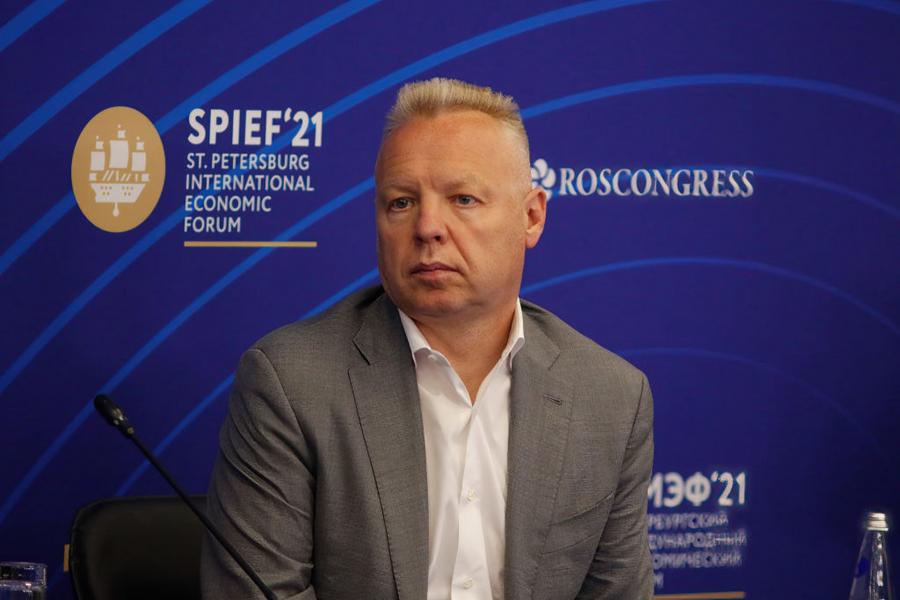Dmitry Mazepin at a Glance
- Categories: Business > Billionaires, Business
- Net Worth: $1.8 Billion
- Birthdate: Apr 18, 1968 (56 years old)
- Birthplace: Minsk, Byelorussian SSR, Soviet Union
- Profession: Owner, Chairman of Uralchem
Dmitry Mazepin’s Net Worth: A Deep Dive into the Life and Finances of the Russian Oligarch
Introduction
Dmitry Mazepin, a prominent Belarusian-Russian oligarch, has made headlines for his vast wealth, estimated to be around $1.8 billion. His career spans various sectors, from chemical manufacturing to finance and oil. This article delves into the details of Dmitry Mazepin’s net worth, his business dealings, controversial moments, and personal life, providing a comprehensive overview of this influential figure.
Early Life and Education
Dmitry Arkadyevich Mazepin was born on April 18, 1968, in Minsk, then part of the Soviet Union. His early life included education at the prestigious Suvorov Military Academy, from which he graduated in 1985. Following his military academy training, Mazepin served as a military interpreter in Afghanistan. He furthered his education by attending the Moscow State Institute of International Relations (MGIMO University) in 1992. This diverse educational background likely played a crucial role in shaping his future career trajectory and business acumen.
Career Beginnings and Early Business Ventures
Mazepin’s career began with executive positions in the Russian business sector. He held roles at major Russian companies, including TNK and Sibur. His early career saw him take on significant responsibilities, showcasing his ambition and ability to navigate the complex business landscape of post-Soviet Russia. From 1992 to 1993, Mazepin served as CEO of the insurance company Infistrakh, indicating his early involvement in the financial sector. Later, he became the deputy branch manager of Belarusbank and held various executive positions at Falkon Bank, further solidifying his expertise in finance and banking. In 1997, Mazepin was appointed vice president of the oil company TNK, a significant step forward in his career. He then became the deputy president of the board of Flora Moscow Bank in 1998, holding the position until 1999. After Flora Moscow Bank, Mazepin took on the role of CEO of the coal producer Kuzbassugol, and then served as the first deputy chairman of the Russian Federal Property Fund, indicating a diverse experience in different industries.
Sibur and the Rise of Constructive Bureau
From 2002 to 2003, Mazepin served as the president of Sibur, a subsidiary of Gazprom, the Russian state-owned energy company. During his tenure, he focused on stabilizing the financially challenged company and diversifying its revenue streams. His efforts were crucial in returning company assets and ensuring the company’s financial stability. After leaving Sibur, Mazepin founded Constructive Bureau in 2004. This company acquired a majority stake in the Kirovo-Chepetsk Chemical Plant, and Mazepin became the chairman of the board. Constructive Bureau strategically acquired stakes in several other chemical companies, including Perm Halogen, Minudobrenia, Berezniki Azot, and Khimprom. This expansion set the stage for his future ventures in the chemical industry.
Uralchem: The Chemical Giant
In 2007, Dmitry Mazepin consolidated his assets to form Uralchem, a public joint-stock company specializing in the production of chemical products. Uralchem quickly became a major player in the global fertilizer market. The company’s production capacity includes millions of tons of ammonia and ammonium nitrate, as well as significant volumes of fertilizers and phosphates. Mazepin served as the chairman of Uralchem’s board of directors. In 2008, Uralchem acquired a 75% stake in Voskresensk Mineral Fertilizers, increasing it to 100% a few years later. Uralchem also formed Halopolymer by combining the production facilities of Perm Halogen and Kirov-Chepetsk Plant. In 2013, Uralchem acquired a 20% stake in Uralkali, the world’s largest potash fertilizer producer, in a deal valued at around $2.9 billion. Mazepin joined Uralkali’s board of directors, eventually becoming the deputy chairman. Uralchem expanded its operations with a terminal at the Riga Port in Latvia, designed for storing and handling bulk fertilizers. The company also acquired a controlling stake in SIA Ventamonjaks, a liquid ammonia transshipment terminal. Uralchem has expanded into African markets, with developments planned in countries like Zimbabwe, Angola, Zambia, and Kenya.

(Photo by Maksim Konstantinov/SOPA Images/LightRocket via Getty Images)
Controversies and Sanctions
Dmitry Mazepin’s business dealings have not been without controversy. During his time at the Russian Government Property Fund, he faced accusations of conflicts of interest. Later, he was accused of attempting a hostile takeover of the chemical company Togliattiazot. Following Russia’s invasion of Ukraine in early 2022, Mazepin was sanctioned by the European Union and the United Kingdom. These sanctions led him to sell his majority stake in Uralchem and step down as CEO. As a result of these sanctions, many of his assets were seized by authorities.
Personal Life and Philanthropy
Dmitry Mazepin has five children with his wife, with three children being publicly known: Nikita, Anastasia, and Maria. Nikita Mazepin is a racing driver. Following the sanctions imposed after Russia’s invasion of Ukraine, he lost his Formula One contract. On the philanthropic front, Mazepin has supported various causes, including educational programs, social programs for veterans, regional development initiatives, and cultural and sporting events. In 2012 alone, he reportedly spent $700,000 on charitable causes, including an initiative that sponsored automobiles for low-income families in the Kirov region. These philanthropic efforts showcase his commitment to giving back to society.
Conclusion
Dmitry Mazepin’s journey is a testament to his business acumen and ambition. His career showcases his rise from early executive positions to leading significant companies such as Uralchem. While his financial success is undeniable, controversies and the recent sanctions have added layers of complexity to his story. Mazepin’s legacy is shaped by his business ventures, the controversies that have followed him, and his efforts to contribute to society through philanthropy. Understanding his journey provides insight into the dynamics of wealth, power, and influence.
In April 2022 a $115 million Italian Villa was seized by financial police after it was determined that the property was legally owned by Dmitry and his son Nikita. You can see the incredible property in this drone video below:

